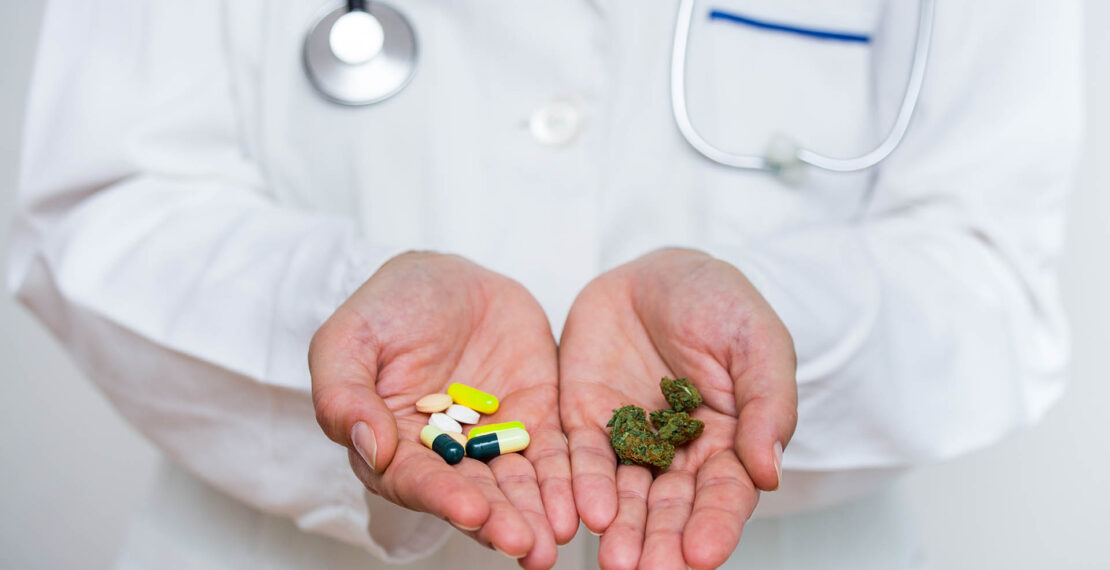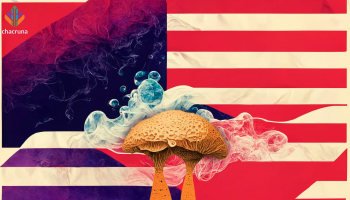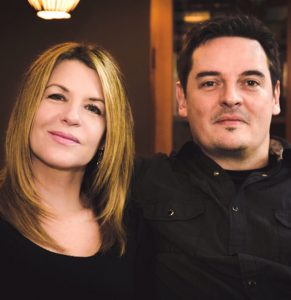Disclaimer: Psychedelics are largely illegal substances, and we do not encourage or condone their use where it is against the law. However, we accept that illegal drug use occurs and believe that offering responsible harm reduction information is imperative to keeping people safe. For that reason, this article is designed to enhance the safety of those who decide to work with psychedelics.
Cannabis and psychedelics are continually making top headlines, and October is no different. Recent research finds that cannabis and psychedelics could propel traditional breast cancer treatment methods, making them more effective through anti-inflammatory and tumor management effects. On the regulatory side, five states are voting on legalizing marijuana this November, while Colorado is poised to pass a psychedelics bill. From the federal level, the DEA is finally loosening its grip on schedule 1 hallucinogens, making it easier for researchers to study these transformative substances. Let’s review the top psychedelic news stories for October 2022.
Cannabis and Psychedelics Could Effectively Support Breast Cancer Therapy
A woman diagnosed with stage IV metastatic breast cancer incorporated microdoses of psilocybin and whole-plant THC and CBD edibles into her treatment regimen. Assisted by her husband, an endocannabinologist, the medicines propelled her cancer treatments’ effectiveness, suggesting a link between cannabis, psychedelics, and an overall reduction in inflammation, tumor management, and better mental health outcomes. To raise awareness, a study published by life sciences company Grace Health & Wellness examined the possibility of using psychedelics and cannabis to increase the effectiveness of traditional pharmaceutical cancer treatments. The study is the first-ever evidence of these alternative therapies’ healing potential. If regulatory approvals are granted, cancer patients may have access to these natural modalities in the future. Here are the basics from the cannabis and psychedelics breast cancer study:
- From the time of diagnosis in August 2018 to October 2018, the patient used cannabis-based medicinal products to supplement her chemotherapy regimen, leading to a reduction in tumor mass by 50%.
- From January 2019 to September 2019, the patient didn’t receive chemotherapy treatment but maintained cannabinoid and psychedelic-assisted therapy. A CT scan in September 2019 confirmed no evidence of recurrent disease.
Numinus Developed a Psilocybin Tea Bag for Therapeutic Use
Numinus is a Canadian mental healthcare company. Its research branch, Numinus Bioscience, developed a psilocybin tea bag delivering 25mg of the active ingredient per dose using their validated strain of Psilocybe cubensis. Eventually, it hopes clinicians will use this as the delivery method for psychedelic-assisted therapy. Numinus announced that it would use the tea bag in a phase-1 trial of practitioners receiving experiential training for psilocybin-assisted therapy. Numinus also hopes to incorporate the tea bag in trial partnerships with Cedar Clinical Research. Additionally, Numinus submitted the tea bag to Health Canada’s supplier list through the Special Access Program, where healthcare providers can apply to provide psychedelic-assisted therapy to patients with demonstrated needs. In a recent press release, Numinus Chief Science Office Dr. Paul Thielking said, “Numinus recognizes that solid therapeutic products, such as whole mushrooms or pills, might be unappealing or difficult to use by certain populations, such as some people receiving palliative care for serious illnesses. This new product is part of our commitment to increasing accessibility to psychedelic-assisted therapies for those in need while contributing to the growing research that suggests psilocybin use in combination with therapy may be highly effective for treating mental health disorders.”
Grow 1 Year's Worth of Microdoses in Just 6 Weeks
Third Wave partnered with top mycologists to create the world’s easiest and best mushroom growing program (kit, course, and expert support).
- Pre-sterilized and sealed
(ready to use out of the box) - Step-by-step video and text course
- Access to growing expert in community
- Make your first harvest in 4-6 weeks
- Average yield is 1 - 4 ounces (28-108g)
- Fits in a drawer or closet
- Enter info for Third Wave discounts:
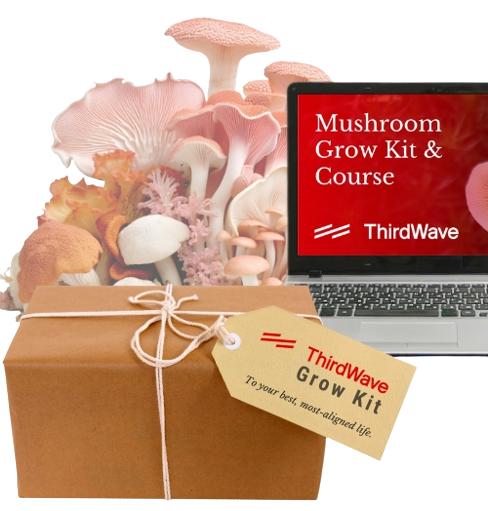
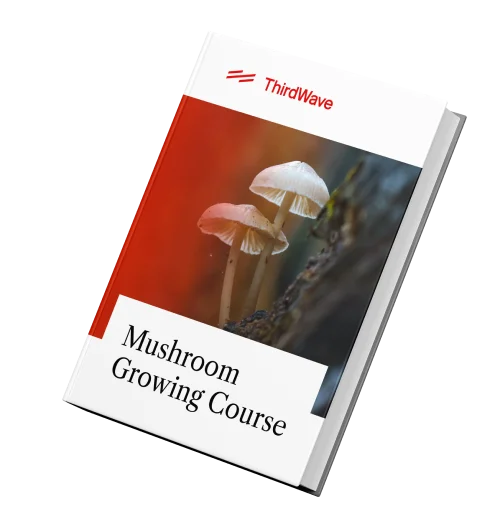
Grow 1 Year's Worth of Microdoses in Just 6 Weeks
Third Wave partnered with top mycologists to create the world’s easiest and best mushroom growing program (kit, course, and expert support).
- Pre-sterilized and sealed
(ready to use out of the box) - Step-by-step video and text course
- Access to experts in community
- Make your first harvest in 4-6 weeks
- Average yield is 1 - 4 ounces (28-108g)
- Fits in a drawer or closet
- Enter info for Third Wave discounts
DEA Suggests Doubling Marijuana And Psychedelics Production for Research
The Drug Enforcement Administration (DEA) wants to more than double cannabis and psychedelics production for 2023 research. This increase includes cannabis, psilocybin’s key “magic” ingredient psilocin, LSD, 5-MeO-DMT, mescaline, and other THC products, including hemp-derived, semi-synthetics such as Delta-8 and Delta-10. The growing interest in psychedelics for medical research and growing decriminalization movements encouraged the DEA to loosen its grip. The increased quotas announced for 2023 reflect the quantities the DEA deems necessary to meet the medical and scientific research communities and the United States’ industrial needs. The DEA’s proposed psilocin quota is 8,000 grams, up from 4,000 grams last year. Its cannabis quota rose from 3.2 million grams to 6.7 million grams. This announcement represents a significant win for the psychedelics community, coming just one month after the DEA abandoned initial plans to place five tryptamine substances in Schedule I.
States Voting On Marijuana And Psychedelics Legalization This November
While congress drags its feet on federal drug reform, five states placed marijuana legalization on their ballots this November. Additionally, voters in one state will cast their ballots with a chance to enact a historic reform legalizing psychedelic possession. States that are voting on legalizing cannabis for adults 21 and older include Arkansas, a historically conservative state, and Maryland, which now has a medical-only program, as well as Missouri, North Dakota, and South Dakota. All states except Arkansas will also include a home-grow component in the bill’s language. Meanwhile, in Colorado, voters will decide whether to legalize psychedelic possession, a pathway to opening “healing centers” to administer psychedelics like psilocybin and ibogaine for therapeutic purposes. If passed, Colorado could be the second state following Oregon to create a regulatory path to psychedelic healing.
Grow 1 Year's Worth of Microdoses in Just 6 Weeks
Third Wave partnered with top mycologists to create the world’s easiest and best mushroom growing program (kit, course, and expert support).
- Pre-sterilized and sealed
(ready to use out of the box) - Step-by-step video and text course
- Access to growing expert in community
- Make your first harvest in 4-6 weeks
- Average yield is 1 - 4 ounces (28-108g)
- Fits in a drawer or closet
- Enter info for Third Wave discounts:


Grow 1 Year's Worth of Microdoses in Just 6 Weeks
Third Wave partnered with top mycologists to create the world’s easiest and best mushroom growing program (kit, course, and expert support).
- Pre-sterilized and sealed
(ready to use out of the box) - Step-by-step video and text course
- Access to experts in community
- Make your first harvest in 4-6 weeks
- Average yield is 1 - 4 ounces (28-108g)
- Fits in a drawer or closet
- Enter info for Third Wave discounts
Proposition 122: Natural Medicine Health Act
Colorado’s Proposition 122, Natural Medicine Act seeks to legalize psilocybin and psilocin for those over 21. Psilocybin and psilocin are hallucinogenic compounds present in psychedelic mushrooms. If Coloradan passes the Natural Medicine Act, it will create a legal access program allowing adults to consume the substances in state-regulated settings, supervised by trained facilitators for therapeutic purposes. Organizers believe Prop 122 is essential for providing Coloradans with effective treatment options, as the state ranks low for mental health care. Although Coloradans would not be able to buy mushrooms over the counter, this legislation can pave the way for regulators to decide whether or not to create similar programs for administering DMT, ibogaine, and mescaline starting as soon as 2026. Recent research has found that these compounds all have the potential to effectively treat mental health disorders such as PTSD, depression, and anxiety.
October marked another memorable month toward progressing the psychedelic mission. We look forward to continuously updating you with the latest, high-quality news surrounding plant medicines, clinical developments, education, and more. Did you enjoy this article? Let us know! See something missing? We’ll consider adding it. Contact us today.

